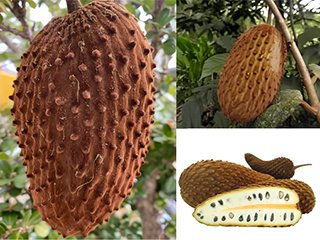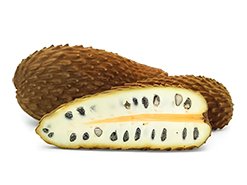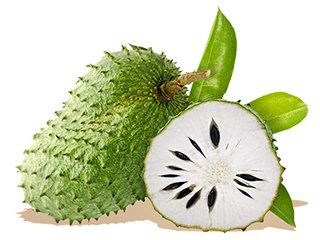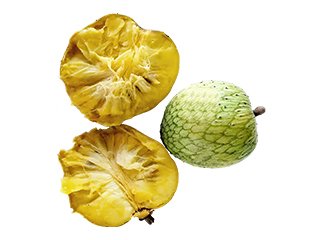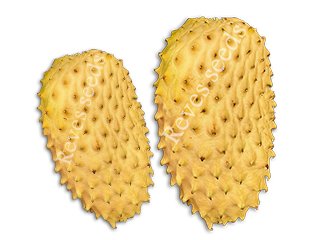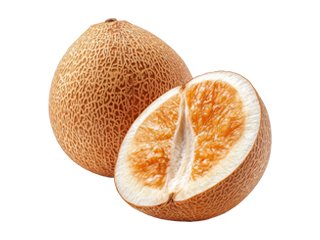Soursop muricata Gold F1
An exceptional variety that combines vigor, beauty, and distinctive taste. It is a hermaphrodite hybrid that does not require external pollination. It is distinguished by its unique taste and high nutritional value, and is considered a rare treasure for lovers of luxurious tropical fruits. Suitable soil: Loamy or sandy loam soil rich in organic matter. Very well-drained, with a pH between 6.0 and 7.5. Does not tolerate heavy or waterlogged soil. Suitable climate: Tropical and subtropical regions. Tolerates slight cold down to -7°C, but is damaged by severe frost. Does not tolerate prolonged drought or extreme heat above 45°C. Tree size and growth rate: Small to medium-sized tree, reaching 5–6 meters. Rapid growth rate (60–70 cm per year). Fruiting begins within 3 years of planting from seed. Flowering and fruiting time: Blooms in spring and early summer. Hermaphrodite flowers do not require manual pollination. Fruits ripen 5–8 months after natural pollination. Ripening season is from August to October. Flower specifications: Small, solitary, or in small clusters. Hermaphrodite structure with both male and female organs. Yellowish-green petals with a slightly rough, leathery texture. Flower diameter about 2–3 cm. Mildly scented to attract pollinators. Blooming pattern supports self-pollination. Fruit description: Elongated oval fruit, 20–30 cm in length, 15–20 cm in diameter. Typical fruit weight ranges between 1500–2000 grams. Rind dark green when young, turning reddish-brown when ripe. Texture rough with blunt ridges, sometimes lightly hairy. Medium-thick rind that detaches easily when ripe. Flesh creamy white to light yellow, very soft and juicy. Mild sweet flavor with a refreshing acidic note. Strong, attractive aroma resembling tropical fruits. Few dark brown to black, smooth, hard seeds. Fruit uses: Consumed fresh, used in juices and desserts. Excellent for making natural tropical-flavored ice cream. Contains numerous beneficial natural compounds. Disease and pest resistance: Moderately resistant. Susceptible to root rot in poorly drained soils. May be attacked by mealybugs, scale insects, and fruit flies during fruit ripening. Good resistance to nematodes. Important notes: Prefers full sun with protection from strong winds. Requires regular but moderate watering. Light organic fertilization promotes growth and fruiting. Protect ripening fruits with mesh bags to avoid fruit fly damage. The Annona cherimolioides tree is a rare gem among tropical fruits, offering a powerful combination of vigor, rich flavor, and exceptional agricultural value.



 Tiếng Việt
Tiếng Việt Francais
Francais